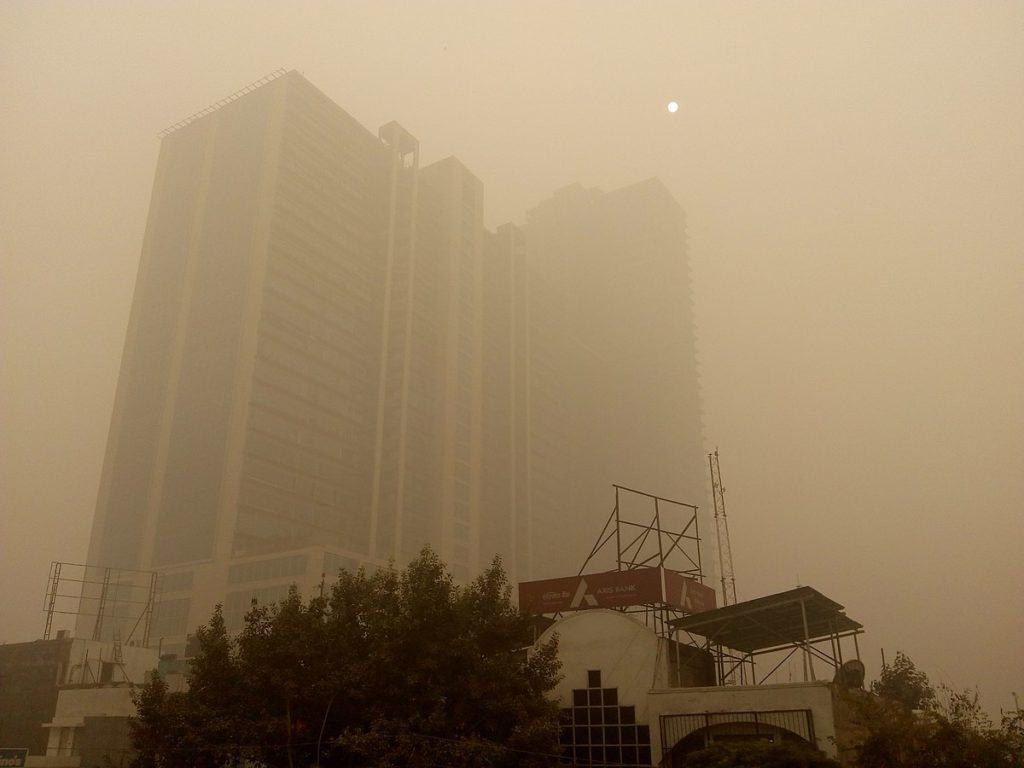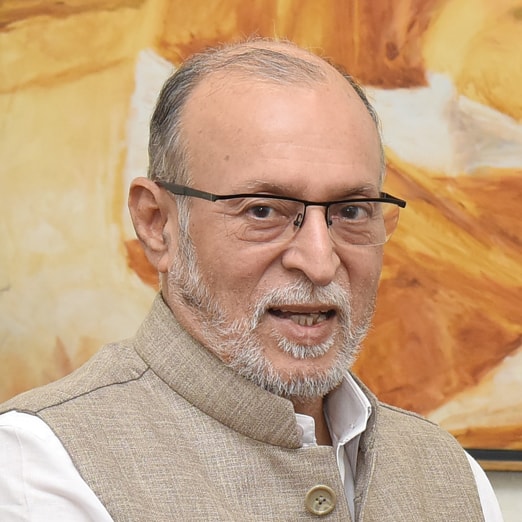To explore any workable solution to the problem of air quality in Delhi, one needs to first understand Delhiites themselves. Delhiites have two unique behaviour patterns. One, all laws, rules and regulations apply only to others, not to themselves. A Delhiite caught breaking a rule would call the relative of a relative of a relative to bail him out rather than obey the rule.
The second is whatever goes wrong, like the very poor air quality that the capital is facing right now, is always someone else’s fault. Never their own. No way will they not take out their personal vehicle, even though vehicular pollution is one of the major causes for the city’s poor air quality. And if there is any kind of control or ban on the use of personal vehicles, there is always the relative of a relative of a relative to get them an exception.
The responsibility for the poor air quality, for instance, lies with the poor farmers in Haryana and Punjab who burn their farm stubble to get the field ready for the next sowing. Despite all the scientific evidence showing this to be untrue, while proving that vehicular traffic, especially the increasing use of private vehicles, is a much bigger polluter than stubble burning.
Asking the Delhiite to contribute in any way to finding solutions to the many problems plaguing Delhi will elicit an ‘are you crazy?’ response. Like helping to clean up Delhi’s air, and preventing it from happening again next year. That is the responsibility of the ‘sarkar’ the Delhiite would say.
All that the Delhiite wants is that the ‘sarkar’ ensures that his pollutant spewing car, and energy guzzling air conditioners, diesel generators and what have you keep running, while he can continue to breathe in pure air.
And that is the problem. Who exactly is the ‘sarkar’ responsible for cleaning up and managing air quality?
Read more: Delhi: Lapse of air quality commission confirms the devious motives behind it
Oh so easy to pass the buck!
Just take a look at all the ‘sarkars’ of Delhi. Commanding the heights of this ‘sarkari’ pyramid is of course the Modi-led BJP government. Then comes Chief Minister Arvind Kejriwal’s AAP state government. But Kejriwal has to contend with a Lieutenant Governor, appointed by Modi, a political appointee whose main job seems to be to stymie whatever Kejriwal sets out to do.
Then there are four municipal corporations. Three controlled by the BJP. And the centrally-controlled New Delhi Municipal Corporation, that manages what is called Lutyens Delhi, home to the PM, President, a host of ministers and a small army of bureaucrats. And the cantonment boards, that manages all land allotted to the armed forces.
Delhi is essentially a city of central bureaucrats, political parties and their workers, all out to mainly keep their vote banks happy and petty civic officials, each out to fiercely guard, and where possible expand, their respective turf and increase their budgets.
In all this, who exactly is supposed to be accountable for managing Delhi’s air quality? A statutory body comprising bureaucrats and experts was set up by an act of Parliament for this, but the Commission has hardly been effective enough. It would seem the members of this body, who are largely insulated from breathing Delhi’s polluted air, have collectively thrown their arms up in helplessness.
Read more: Delhi: Lapse of air quality commission confirms the devious motives behind it
It would not be surprising if the Supreme Court, which has been hearing pleas to force the government to clean up Delhi’s atmosphere, gives up too.
Finding a way out
So, as Delhi’s air quality goes from ‘very poor’ to ‘severe’, temporary ‘emergency measures’ are imposed. Unfortunately, implementation of some of these emergency measures, like controlling vehicular movement in the city, lies with the Delhi police. And they take their orders not from the Delhi government, but from the union home ministry.

But the union home ministry does not want any sort of lockdown even for a few days, to at least allow the air a breath of fresh air, despite the evidence of the remarkable effect of last year’s lockdown on Delhi’s atmosphere, when distant hill ranges of neighbouring states suddenly became visible from Delhi.
Read more: Delhi’s toxic air: From emergency measures to sustained action
People matter little in this power game of passing the buck, which stops nowhere. The illnesses this level of air pollution can cause to kids and adults is well known. The steps needed for proper air quality management is also well known. And they are not rocket science.
Just five simple steps to start with.
- Ramp up and improve clean energy public transport so that more people can leave their personal vehicles at home
- Cut the use of fossil fuels in vehicles and industry drastically, by suitably incentivising use of renewable energy
- Prevent burning of waste by contractors paid to collect and treat this waste
- And promote use of clean fuel for domestic use
- Involve the citizens in finding a sustainable solution
But the Delhiite would rather crib and complain and point fingers. Rather than themselves do something. Anything.
